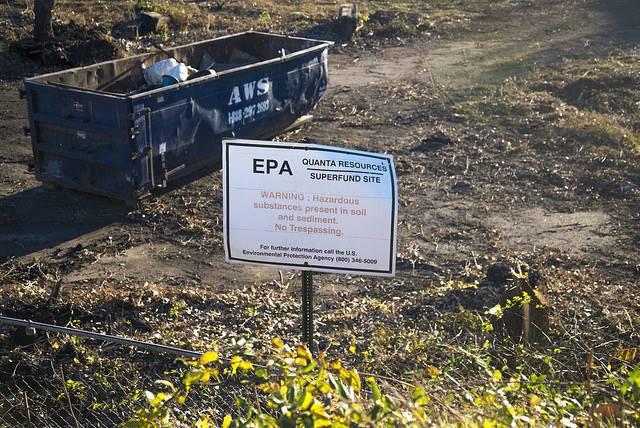
Last week Mustafa Ali, the Environmental Protection Agency’s chief environmental justice officer, announced his resignation.
In a letter to EPA Administrator Scott Pruitt, Ali shared his concerns about the agency’s future work with poorer communities, writing: “I wonder if our new leadership has had the opportunity to converse with those who need our help the most.”
Ali helped establish the environmental justice office in 1992 during the George H.W. Bush administration. Over those 24 years, Ali said he worked with over 500 communities, overwhelmingly areas where the vast majority included the poor, people of color or Native Americans. Ali pointed out that these communities often struggled with poor air quality, aging water and sewage infrastructure, and hazardous waste sites, including those that were part of the EPA’s Superfund program.
During both Republican and Democratic administrations, Ali said considerable progress was made on remediating and protecting these vulnerable communities.
But an internal memo leaked to publications earlier this month, including the Washington Post, suggests a plan is underway to reduce the EPA’s annual budget by a quarter or more, and its staff by a fifth.
And the administration’s proposed budget could eliminate the EPA's environmental justice office altogether, reported by The Oregonian and others. Another report on CNN suggested that budget cuts to the EPA could even be deeper.
Between those changes, and the fact that Ali’s title as senior advisor to the EPA administrator was stripped when Pruitt’s predecessor, Gina McCarthy, left in January, the former environmental justice head felt he needed to “stand up,” he told the blog ThinkProgress.
The shuttering of the EPA’s environmental justice office, along with other proposed cuts to the Housing and Urban Development as well as the debate over the Trumpcare health legislation, starkly contrast with Donald Trump’s promises to “rebuild” America’s urban centers. Environmental justice activists have long argued that the revitalization of any poor community must include commitments to improve air quality and ensure access to safe water.
And in an interview with NPR earlier this week, Ali made it clear that people of color were hardly alone in confronting substandard air and water quality. "It's also low-income white communities,” Ali told “Morning Edition” host Steve Inskeep. “If you look through Appalachia -- if you look throughout the Rust Belt and so many other places across our country -- there are many communities who are also facing environmental injustices.”
If the EPA’s environmental justice budget indeed craters to only $1.5 million annually, and its mandate is buried within the agency’s policy office, watch for the small grants that spurred environmental cleanup in poor neighborhoods across the country to disappear.
As Ali argued in his resignation letter, those funds helped mobilize citizens to work together to revitalize their communities. The EPA’s brownfield cleanup programs, for example, generated an additional $16 in additional funds for each dollar the agency dispersed. And a $20,000 EPA grant to clean up a contaminated site in Spartanburg, South Carolina, eventually blossomed into a $270 million investment in economic revitalization, job training, environmental cleanup, infrastructure and the establishment of a local health services center.
While the environmental justice movement is largely localized, Ali insists that a federal presence -- as in the EPA -- is valuable for its offering of technical assistance and resources. “When the federal family or federal agency enters into a space, it will attract others to that conversation, allowing communities to get traction to be able to be a full partner in a process,” he told ThinkProgress reporter Natasha Geiling.
Image credit: Anthony Albright/Flickr

Leon Kaye has written for 3p since 2010 and become executive editor in 2018. His previous work includes writing for the Guardian as well as other online and print publications. In addition, he's worked in sales executive roles within technology and financial research companies, as well as for a public relations firm, for which he consulted with one of the globe’s leading sustainability initiatives. Currently living in Central California, he’s traveled to 70-plus countries and has lived and worked in South Korea, the United Arab Emirates and Uruguay.
Leon’s an alum of Fresno State, the University of Maryland, Baltimore County and the University of Southern California's Marshall Business School. He enjoys traveling abroad as well as exploring California’s Central Coast and the Sierra Nevadas.














